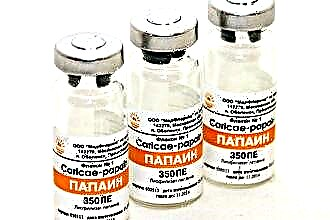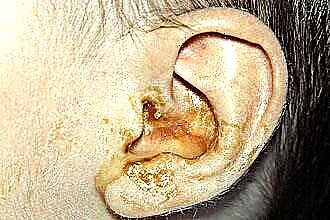The indisputable advantage of traditional medicine is the minimal risk of adverse reactions, which is due to the natural origin of the medicinal components. Today, there are many opinions about the use of vegetable juices in the treatment of rhinitis. Beetroot nose drops for children can only be used after medical advice and specialist permission.
Given the child's fragile immune system, the continuing development of organs, the use of folk remedies is not always safe. Some natural medicines can cause an allergic reaction and complicate the runny nose.

Proponents of traditional therapy claim that vegetable juices, when instilled into the nose, become a breeding ground for microbes, thereby stimulating their reproduction. As a result, the inflammatory process does not subside, and the symptoms of the disease persist for a long time. In this regard, it is not recommended for a child to use this medication.
Adherents of alternative therapy, on the contrary, widely use vegetable remedies in the treatment of rhinitis, sinusitis and other inflammatory diseases of the nasopharynx.
Note that there is no verified data on the benefits of beetroot juice for childhood rhinitis.
If the doctor still allowed the use of the vegetable for medicinal purposes, it is recommended to strictly follow the rules for the preparation of medicines.
Action
 It is very easy to use beet juice for children with a cold, because the preparation of medicines does not require effort, and the vegetable can be found in every home. The presence of a large amount of vitamins, natural antiseptics, trace elements makes it possible to prescribe a vegetable remedy for therapeutic purposes. Beet juice with a cold in children provides the following effect:
It is very easy to use beet juice for children with a cold, because the preparation of medicines does not require effort, and the vegetable can be found in every home. The presence of a large amount of vitamins, natural antiseptics, trace elements makes it possible to prescribe a vegetable remedy for therapeutic purposes. Beet juice with a cold in children provides the following effect:
- decongestant. Please note that in childhood, the nasal passages are narrower than in adults, as a result of which even a slight swelling of the mucous membrane can lead to impaired nasal breathing;
- a decrease in the viscosity of mucus, due to which its outflow is restored, the accumulation of secretions and their infection is prevented;
- moisturizing the mucous membrane. The enveloping property of the juice allows you to reduce the irritating effect of environmental factors on the mucous membrane and reduce the risk of injury. It is especially important to regularly moisturize in atrophic form of rhinitis, when the mucous membrane becomes dry and its integrity is disturbed;
- dilation of the blood vessels of the nasal passages. As a result, the delivery of immune components is improved and the protection of the mucous membrane is increased. With mucosal atrophy, tissue nutrition is normalized and their structure is restored.
To achieve the desired result, you need to choose the right beets. To prepare the medicine, you will need a maroon vegetable, slightly oblong in shape. Beets without whitish veins are best suited for treatment, which increases its healing properties.
Beet juice from the common cold is widely used in folk medicine due to its high content of iron, copper, potassium, iodine, zinc.
Methods for preparing vegetable drops
Beetroot juice for the common cold can be used as monotherapy or in combination with other natural ingredients.
Before starting treatment, you must make sure that the child is not allergic to the products used.
To check for allergies, just apply a few drops of the medicine to the back of your wrist. You need to evaluate the results of the allergy test in an hour. If rashes, tissue swelling, itching or redness appear, the drug must be discarded.
The recipe uses only fresh vegetables, because after heat treatment, some of the nutrients are lost. Before preparing a healing agent, you first need to prepare a vegetable:
- beets should be washed under water and poured over with boiling water. Peeling the vegetable should be gentle, grabbing a thin layer of the peel. Remember that most of the vitamins and nutrients are contained just under the peel;
- using a regular grater, you need to chop the vegetable, squeeze the juice through a gauze napkin. To make your job easier, you can use a juicer;
- leave the resulting juice in the refrigerator for a couple of hours, after which we take it out and wait until it heats up to room temperature on its own;
- It is not recommended to bury concentrated beet juice in a child's nose, therefore, it must be diluted before use. Purified water is used for dilution. Add 15 ml of water to 20 ml of juice;
- for children 3-6 years old, instillation of 1 drop in each passage is shown. At an older age, 2-3 drops are used. The treatment procedure is repeated twice a day;
- the prepared juice can be stored in the refrigerator for no longer than three days.
 The therapeutic effect of using a saline solution is no worse than that of using beetroot juice. Given this fact, parents are advised to give preference to solutions based on sea or edible salt. They have no side reactions and are resolved from the first days of life.
The therapeutic effect of using a saline solution is no worse than that of using beetroot juice. Given this fact, parents are advised to give preference to solutions based on sea or edible salt. They have no side reactions and are resolved from the first days of life.
Beets from the common cold for children can be used in combination with other natural ingredients. Here are some recipes:
- concentrated freshly squeezed beet juice should be diluted with water (2: 1) and measured 15 ml. Add 5 ml of liquid honey to the resulting diluted juice. The healing mixture is used for nasal instillation, drop by drop, twice a day;
- vegetable juices (carrot, beetroot) must be mixed in equal volumes, add olive oil (1: 2). The tool can be used for atrophic rhinitis to moisturize the mucous membrane and easily remove dry crusts. To do this, it is necessary to lubricate cotton turundas with medicine and insert them into the nasal passages for 7 minutes. You can also bury your nose drop by drop;
- when chronic rhinitis is concerned, it is recommended to use a mixture of vegetable juices with propolis extract (10%). After mixing the same volume of juices, add propolis (3: 1). Bury the nasal passages drop by drop twice a day.
Adding garlic juice or apple cider vinegar to vegetable juice should be cautious due to the high risk of burns to the nasal mucosa.
Healthy recipes
Beets can be used not only for nasal instillation, but for rinsing cavities. We will describe in detail several recipes:
- vegetable juice must be diluted with distilled water to obtain 50% concentration. Rinse the nasal cavities twice a day;
- children over 10 years old can use a combination of several juices. To prepare a healing remedy, you need to peel the garlic, carrots, beets, chop the ingredients and squeeze out the juice. The recipe requires an equal amount of carrot, beetroot juice, and half the amount of garlic. After mixing the ingredients thoroughly, add three drops of olive oil. Instill drop by drop twice a day;
- to 20 ml of a mixture of carrot, beet juice, taken 1: 1, add 5 ml of melted honey and dilute with water (1: 1).
The beetroot remedy does not have a vasoconstrictor effect, so you should not expect a decrease in rhinorrhea. It is especially effective in atrophic rhinitis, when mucous membrane hydration is required.
Side effects of vegetable therapy
Do not forget about the risk of adverse reactions. Possible complications include:
- severe burning, itching in the nose, increased edema, which may indicate an allergic reaction;
- an increase in the volume of secretions, which is due to the expansion of blood vessels;
- increased fever.An increase in temperature is due to the spread of infection and an increase in intoxication.
If complications occur, rinse the nasal cavities with water immediately. Further use of this medication is not recommended. If, against the background of vegetable therapy, the runny nose does not decrease within three days, you should consult a doctor.
Folk recipes are allowed to be used only in combination with traditional methods of therapy.
In childhood, saline solutions, drugs with a vasoconstrictor effect, and homeopathic remedies are prescribed. Thanks to an integrated approach, you can quickly relieve the child of nasal congestion, rhinorrhea and difficulty in nasal breathing.
Throughout the treatment, do not forget about the drinking regime and proper nutrition. Taking into account the preferences of children, you can give not very sweet juices, compotes, tea or still water. Adequate intake of fluid in the body allows you to accelerate the elimination of toxins, reduce the viscosity of secretions and prevent their accumulation in the paranasal sinuses. As for nutrition, it is required to enrich the diet with fresh vegetables, fruits and herbs.
Beetroot juice is allowed only for colds. As for the allergic and infectious origin of rhinitis, this medicine will not lead to recovery. If a runny nose accompanies such serious illnesses as diphtheria, pneumonia or measles, it is better to forget about alternative therapy.
We focus on the fact that natural medicines can help one child and harm another, therefore, during the treatment process, you need to closely monitor the condition of the little patient.



